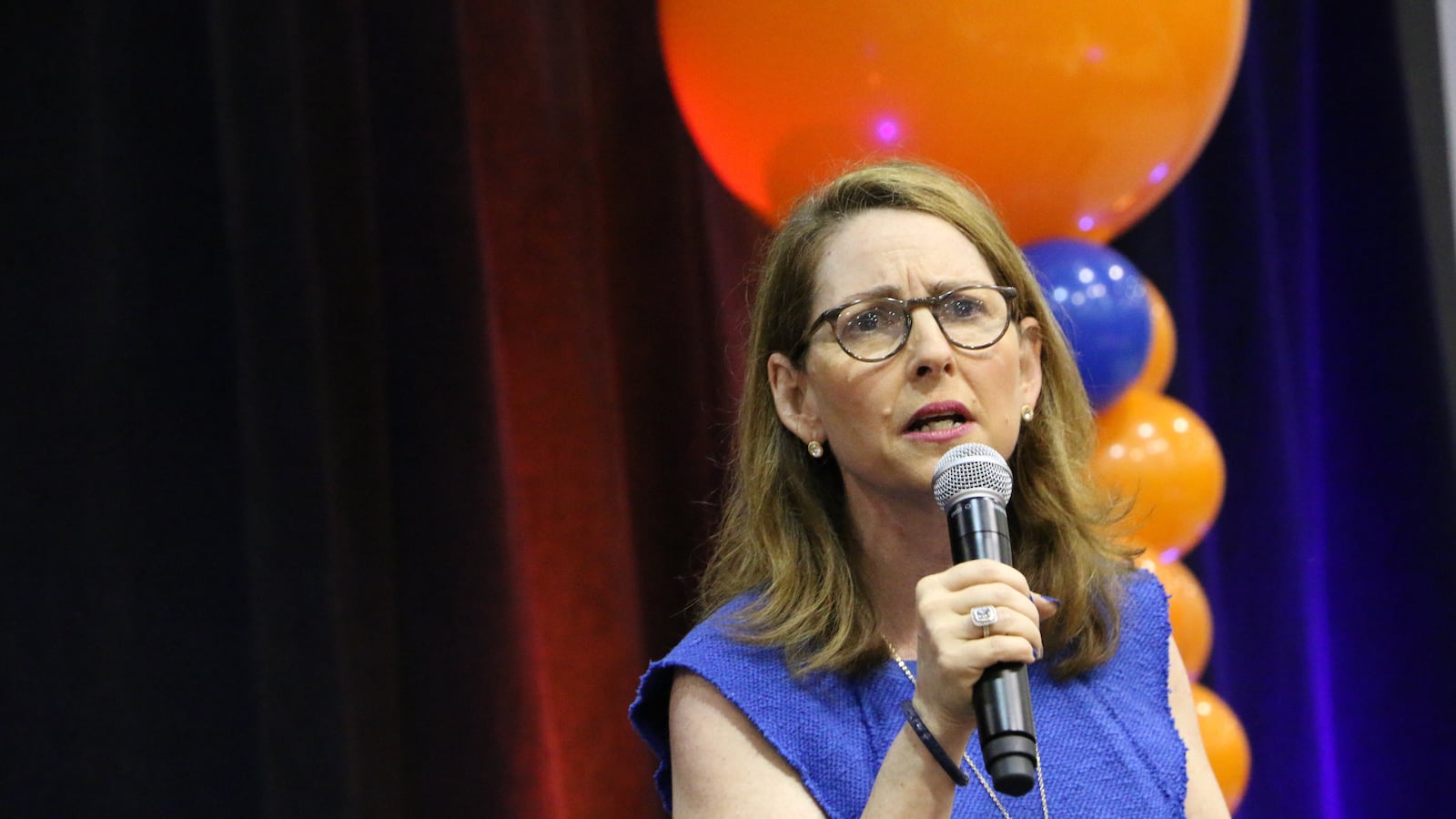Eva Moskowitz wants you to know she still believes in standardized testing.
The CEO of the Success Academy charter network, Moskowitz says she hasn’t been dissuaded by the 20 percent of parents statewide who opted out of the tests last year, or by recent comments from New York’s top education official who said she would opt her own children out if she could.
“I really believe in the tests – I seem to be the only one left standing,” Moskowitz said Friday afternoon, immediately after addressing roughly 2,300 Success Academy students who gathered for a “slam the exam” pep rally at the City College of New York in Harlem.
In an interview with reporters, Moskowitz defended the tests as a way of measuring whether schools are effectively closing the achievement gap, and criticized the broader opt-out movement for leaving students unprepared for tests down the road.
“We need to know how the most affluent communities are performing and whether our kids can do as well as those – and you can’t do that with internal assessments,” she said, noting that no Success Academy parent had opted their child out of state tests in the last seven years.
“Even if you opt out now, you’re not going to be able to opt out of the SAT or opt out of the Common Application for college.”
Moskowitz’s support of standardized tests is hardly surprising. Success Academy, which serves 11,000 students and is the city’s largest charter network, regularly posts some of the highest state test scores in the city, while many of the schools draw from poor communities. Those scores are vital in keeping the charter network’s school doors open and attracting parents.
But her comments come after recent controversies that only provided ammunition for critics who have long believed that Success Academy achieves high test scores by adhering to a draconian disciplinary code and pushing certain students out.
In February, for instance, a video surfaced in which a Success Academy teacher ripped up a student’s assignment in front of a class. And last October, the principal at another Success Academy school was found to have a “Got to Go” list of difficult-to-manage students.
For her part, Moskowitz said the tests only constitute a small part of the curriculum and hasn’t always been so supportive of them. She’s a fan of the newer assessments because they promote more critical thinking skills instead of “military precision,” she said.
Still, against the backdrop of thousands of children singing to pop songs whose lyrics were changed to extoll the virtues of learning and test preparation, and where top test takers were rewarded with large trophies, it seemed hard to escape the reality of testing as a central part of Success Academy’s culture.
“We really emphasize the joy [in] our testing experience – you can see it here,” Moskowitz said. “I think a lot of people think we get the results because it’s somehow easy to do – it’s actually very hard and we struggle.”


